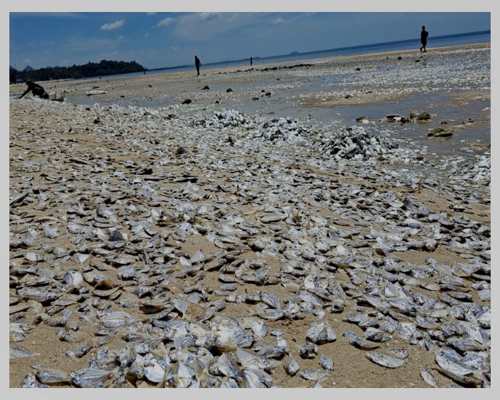Thousands of dead fish washed up on the beach in Thailand
Thousands of dead fish washed up on a nearly 4-kilometer-long beach in southern Thailand’s Chumphon province.
According to one expert who spoke to CNN, this could be due to climate change, which could cause plankton blooms.
In particular, Kasetsart University School of Fisheries Associate Dean Than Thamrongnawasawat attributed the fish deaths to plankton blooms, which reduce oxygen levels in the water and cause fish to suffocate.
“Various natural phenomena such as coral bleaching or plankton blooms have been occurring naturally for thousands to tens of thousands of years. However, global warming is intensifying and the frequency of these phenomena is increasing,” he said.
According to local authorities, plankton blooms occur once or twice a year and usually last for two to three days. Officials collected seawater for further evaluation and analysis.
Dead fish have also washed up on Texas beaches
Ocean heat waves are worrying scientists. According to the UK Met Office, April and May are the months with the highest global sea surface temperatures ever recorded.
The British agency said this is due to both the natural El Niño weather phenomenon that affects global warming and man-made climate change, meaning higher temperatures in the oceans and on land.
Thousands of dead fish washed up on Texas beaches this month as experts warned of algae blooms on Britain’s coastlines as a result of rising sea temperatures.
ALSO READ: Dead Birds Fall From The Sky in Arkansas!
Dead dolphins in California
In Southern California, hundreds of dolphins and sea lions washed up on beaches dead or sick amid toxic algae blooms.
Although California’s algal blooms are caused by strong coastal growth rather than high temperatures, scientists say climate change is likely to increase toxic algal blooms, some of which thrive in warmer waters.
“Whether it’s places like Australia and the Great Barrier Reef or even places around England that are experiencing really bad ocean heat right now, it’s really damaging those local ecosystems,” Sarah said. Perkins Kirkpatrick is a meteorologist at the University of New South Wales in Australia.

